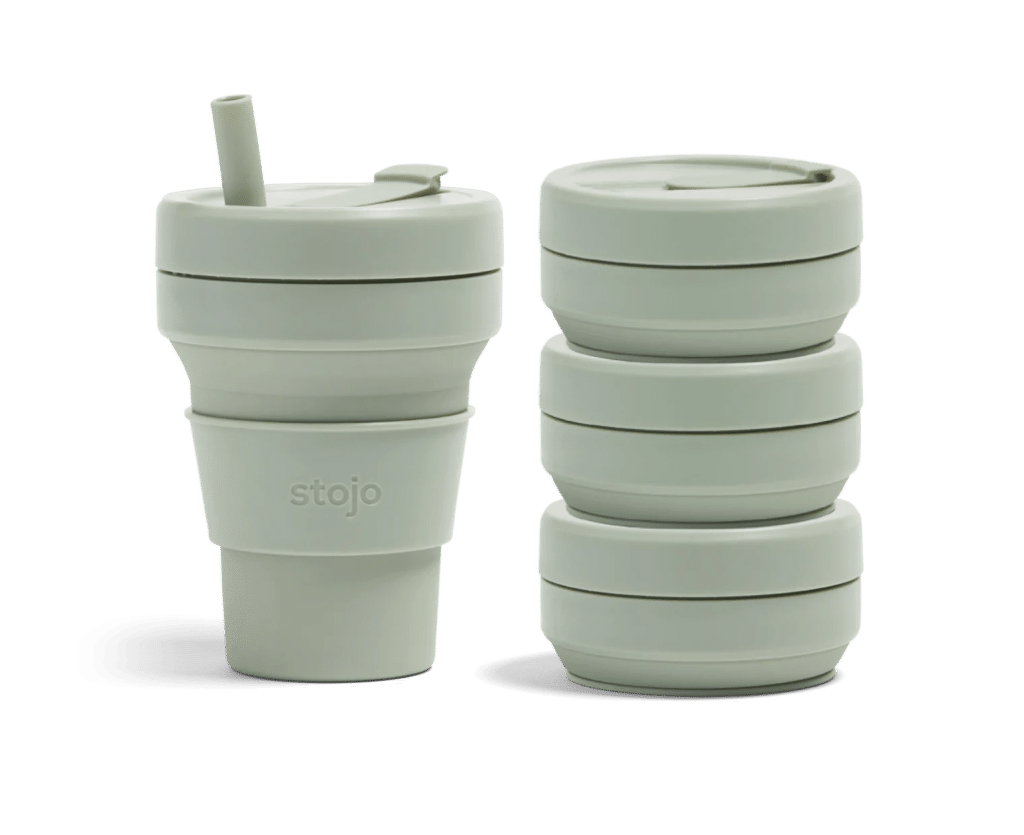Introduction – The Ultimate Zero Waste Travel Kit
As global awareness of climate change and environmental issues grows, sustainable and responsible tourism has become increasingly important. Zero waste travel is a movement that aims to minimize waste and environmental impact while exploring the world.

In this comprehensive guide, we will dive deeper into the concept of zero waste travel, providing you with practical tips, background information, and recommended brands and products to help you on your eco-friendly journey. Air travel is known to be very carbon-intensive, with an average of 150 to 250 grams of CO2 emitted per air mile.
Understanding Zero Waste Travel
Zero waste travel is based on the principles of reducing, reusing, and recycling. By embracing these concepts, travelers can significantly lower their carbon footprint and help protect the environment. The benefits of adopting a zero waste lifestyle while traveling include reduced pollution, conservation of resources, and supporting the global effort to combat climate change.
Traveling with a focus on zero waste encourages people to make more conscious decisions about their consumption habits and promotes a shift towards a more sustainable lifestyle.
Planning Your Zero Waste Travel
Sustainable Destinations and Accommodations
When planning your trip, research eco-friendly destinations that prioritize sustainability and responsible tourism. Look for green certifications such as LEED (Leadership in Energy and Environmental Design) or Green Globe when choosing accommodations. These certifications indicate that the establishment follows environmentally friendly practices, such as using renewable energy, reducing water consumption, and minimizing waste.
Eco-friendly Transportation Methods
Opt for public transport, cycling, or walking whenever possible, as these modes of transport have a lower environmental impact. For longer distances, consider trains or buses, which have lower carbon emissions compared to air travel. By reducing the number of flights taken and choosing more sustainable transportation options, you can significantly decrease your carbon footprint.
Supporting Local Economies and Responsible Tourism
Choose locally-owned accommodations, dine at local restaurants, and purchase souvenirs from artisans to contribute to the local economy. By supporting local businesses, you not only help the local community but also reduce the environmental impact of importing goods and services from other regions.

Packing for Zero Waste Travel Kit
Essential Items
To minimize waste while traveling, pack reusable and sustainable items that can replace single-use products. Here are some essentials for a zero waste travel kit:
- Reusable Water Bottle: Invest in a durable, leak-proof water bottle like the Hydro Flask or Klean Kanteen. This not only helps reduce plastic waste but also saves you money on buying bottled water.
- Travel-sized Reusable Containers: Stasher bags or similar silicone bags are perfect for storing snacks or personal care items. These reusable containers eliminate the need for single-use plastic bags and containers.
- Cloth Produce Bags: Bring reusable cloth bags for shopping at local markets or storing items. These bags can replace disposable plastic bags and can be easily washed and reused.
- Bamboo Cutlery Set: A lightweight, eco-friendly alternative to single-use plastic cutlery. Bamboo is a sustainable material that can be composted at the end of its life.
- Collapsible Food Containers: Great for taking meals on-the-go or storing leftovers. These containers help reduce food waste and the use of disposable food packaging.
- Biodegradable Toiletries: Look for shampoo and soap bars, toothpaste tablets, and eco-friendly dental floss. These products reduce plastic waste and have a smaller environmental impact than their conventional counterparts. How? Mainly by being made of sustainable materials that substitute for the energy and carbon intensive materials and shipped in sustainable containers like paper or no containers at all.
What you find useful for travel you may find useful for daily life. As such, there is a concept of zero waste kits in general daily living that overlaps somewhat with travel kits.
Recommended Brands and Products for Your Zero Waste Travel Kit
To help you create your zero waste travel kit, we have compiled a list of reliable and eco-friendly brands and products:

Reusable Water Bottles – Hydro Flask and Klean Kanteen are both well-known brands for their reusable water bottles, offering high-quality and durable products made from stainless steel. These bottles are BPA-free and have double-wall vacuum insulation to keep beverages cold or hot for extended periods. The stainless steel material prevents leaching of chemicals and ensures the bottle remains odor-free. Both brands prioritize sustainability by offering products that replace single-use plastic bottles and reduce plastic pollution. They are also committed to social responsibility and community engagement through various initiatives.

Reusable Multi-Purpose Silicone Bags – Stasher offers reusable, multi-purpose silicone bags designed to replace single-use plastic bags. These bags are made from food-grade silicone, which is safe for storing food, and they are free of BPA, BPS, lead, latex, and phthalates. Stasher bags are heat-resistant, dishwasher-safe, and can be used in the microwave, oven, and freezer. They come in various sizes and can be used for storing food, toiletries, and other travel essentials. Stasher is a certified B Corporation and a member of the 1% for the Planet, donating a portion of its sales to environmental nonprofits.

Reusable Cloth Bags – EcoBags produces reusable cloth produce bags made from organic cotton or recycled materials. These bags are lightweight, durable, and machine-washable, making them ideal for shopping at local markets or organizing items in your sustainable luggage. By using EcoBags, travelers can eliminate the need for single-use plastic bags and reduce plastic pollution. The company is committed to fair labor practices and environmental sustainability, focusing on reducing waste throughout its supply chain.

Bamboo Cutlery Set – Bambu offers a bamboo cutlery set that includes a fork, knife, and spoon made from sustainably harvested bamboo. Bamboo is a renewable resource that grows quickly, requires minimal pesticides, and can be composted at the end of its life. The cutlery set is lightweight, reusable, and easy to clean, making it a practical alternative to single-use plastic cutlery. Bambu is a certified B Corporation and follows fair labor practices in its production.

Collapsible Food Container – Stojo produces collapsible food containers made from food-grade silicone and recyclable materials. These containers are designed to minimize storage space when not in use, making them ideal for travel. They are leak-proof, dishwasher-safe, and can be used in the microwave and freezer. By using Stojo containers, travelers can reduce their reliance on disposable food packaging and minimize waste. The company is committed to sustainability and reducing single-use plastics.

Ethical Personal Care – Lush is a popular brand known for its handmade, cruelty-free, and ethically-sourced personal care products. Their solid shampoo and soap bars are ideal for travel, as they eliminate the need for plastic bottles and packaging. These bars are concentrated, meaning a little goes a long way, and they often last longer than their liquid counterparts. Lush uses natural ingredients and avoids harsh chemicals, making their products gentle on both the skin and the environment. The company is dedicated to fighting animal testing, reducing packaging waste, and promoting fair trade and responsible sourcing.
Tips for Efficient and Waste-Free Packing
Use packing cubes to keep items organized and avoid over-packing. Consider bringing a reusable shopping tote for additional storage. Remember to check local regulations on what you can bring into the country, especially when it comes to reusable containers and biodegradable toiletries.
Practicing Zero Waste During Your Trip
Mindful Consumption and Waste Disposal
Reduce waste by refusing unnecessary items like disposable cutlery, straws, and napkins. Reuse items whenever possible, such as refilling your water bottle or using cloth bags multiple times. Recycle or compost waste in accordance with local guidelines, and be mindful of the environmental impact of your actions.
Zero Waste Dining Options
Choose restaurants that prioritize locally-sourced ingredients and sustainable practices. Carry reusable containers for leftovers, and refuse single-use plastics. Consider dining at vegetarian or vegan restaurants, as plant-based diets generally have a lower environmental impact than meat-based ones.
Sustainable Activities and Attractions
Opt for eco-friendly activities such as hiking, wildlife watching, or visiting national parks. Be respectful of local ecosystems, and avoid participating in activities that may harm the environment or exploit animals. Research the sustainability practices of tour operators and choose those that prioritize conservation and responsible tourism.
Tips for Reducing Waste in Various Travel Scenarios
Carry a reusable coffee cup or thermos for hot drinks, and use a digital boarding pass instead of printing one. Inquire about recycling facilities at your accommodations, and be proactive in reducing waste throughout your trip.
Inspiring Stories and Examples of Zero Waste Travelers
Numerous zero waste travelers share their experiences and tips online. Some notable examples include Kathryn Kellogg of Going Zero Waste, and Earth Zero’s guide to Zero Waste Travel. These individuals demonstrate how adopting a zero waste mindset can lead to more responsible and sustainable travel experiences.
Conclusion
Each traveler’s actions can make a difference in the fight against climate change and environmental degradation. By embracing zero waste travel principles and making more conscious choices, we can all contribute to a healthier planet and more sustainable future for tourism
